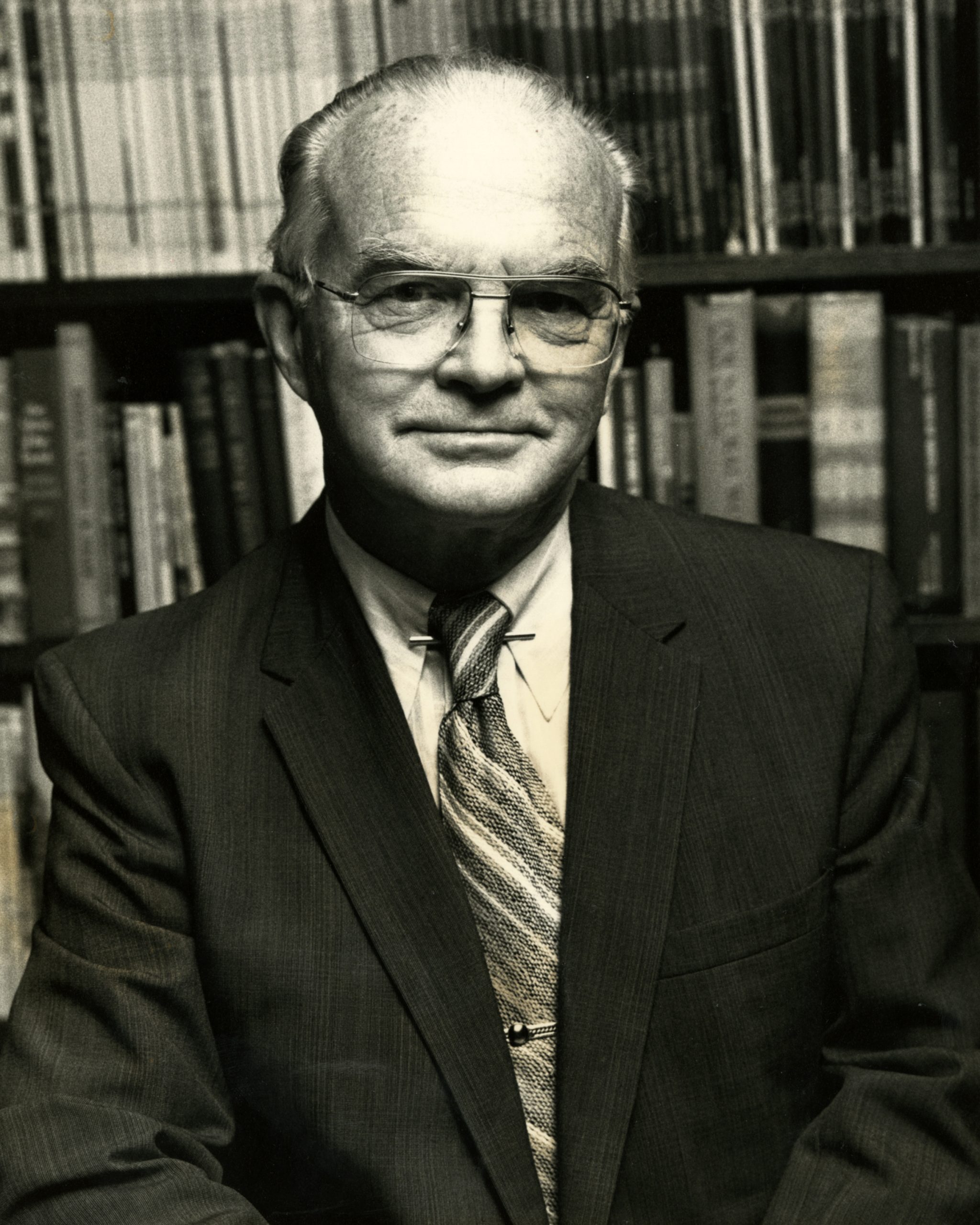The Edgar M. Carlson Award for Innovative Teaching was established in 1971 by the Board of Trustees of Gustavus Adolphus College to honor Edgar Carlson for his years of distinguished leadership as president and in recognition of his commitment to academic excellence. Each year, after a nominating process involving faculty, administrators and students, two slates of nominees are independently prepared, one by the Faculty Personnel Committee, the other by a committee made up of members of the student body. It is from these two slates that the winner is eventually chosen. This year, the name of one person appeared on both lists. I am pleased to present the award, in the amount of $1,500, to Gerhard T. Alexis, Professor of English.
It is rather disconcerting to be singled out as an innovative and effective teacher since these two qualities are difficult to define with respect to classroom performance and even more difficult to judge in an individual. In the case of Gerhard Alexis, the task is considerably easier since he is one of the members of this faculty who has set the standard for innovation and effectiveness and who has attained a level of proficiency to which many aspire. In the classroom, Alexis is a superb teacher. His love for learning is equaled only by the high academic standards he sets for himself and for his students. This rare combination of academic rigor and passionate involvement in his discipline has earned him the reputation of being one of the most demanding and most rewarding professors on campus. So rewarding, in fact, that for many undergraduates a “course from Alexis” has become an unofficial requirement for graduation.
But how is he innovative, you ask? A colleague wrote that Gerhard is one of the few staff members who recognized the need to break down the artificial barriers which separate disciplines and to demonstrate the cross-pollination between them which is, historically, such an integral part of the liberal arts and so important to their continued vitality. His course in American studies is more than a course in literature. It is, in the words of a colleague, “an organized inquiry into the liberal arts, an introduction to the literature, music, art, religion and politics of American culture.”
Innovation is, however, but one component of successful teaching, the other is effectiveness. What makes Gerhard Alexis effective is his ability to inspire, to breathe into his students a desire to learn and to attain a level of proficiency of which they can be proud. The workload in his courses is, according to his students, challenging, but it is a challenge which fosters a growing competence and, subsequently, a new self-respect rather than discouragement and resentment. A former freshman student described a course from him as one in which you worked until you collapsed, and then you picked yourself up and worked some more. When I asked her what grade she received for all of this work, she responded: “A ‘C’, and now I know I can do anything.”
The character of every college is shaped and maintained by a small core of people who are dedicated to its purposes. Gerhard Alexis is one of those people and we as an institution are richer for it. He has been here since 1947 and his service to this college is well known and well documented. His profound understanding of and fierce loyalty to broad institutional concerns have been instrumental in making Gustavus the kind of liberal arts college that it is today. Most recently, he and others like him who are committed to academic excellence have spearheaded an effort to establish a chapter of Phi Beta Kappa. It is safe to say that his influence on this college and on the lives of the generations of students who have known him is immeasurable. Gerhard, your achievements here at Gustavus both in and out of the classroom reflect credit on yourself as well as on your profession and this college. I speak on behalf of my colleagues and your students when I say that we are proud that you have chosen to spend your professional life on this hill. Your presence has indeed enriched our lives. I am especially pleased to present you with the Edgar Carlson Award for 1981.
Presented by Michael Maione
Associate Professor of French
1980 Recipient of the Edgar M. Carlson Award

Leave a Reply
You must be logged in to post a comment.